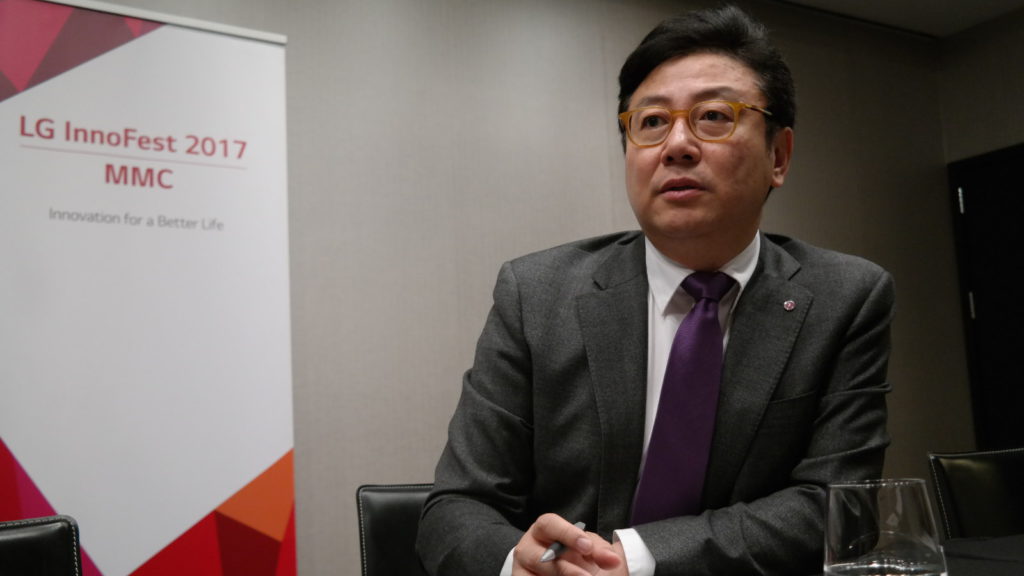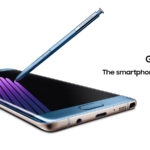LG’s 100-Inch QNED evo AI TV Redefines Big-Screen Viewing in South Africa In a bold leap forward for home entertainment, LG Electronics South Africa…
Interview: LG’s Seongho Choi on smart appliances, future of IoT

The Internet of Things (IoT) is a fast-paced sector, as a ton of companies get into the game. LG has been in the sector for a while though, launching the likes of robot vacuum cleaners, general smart appliances and recently launching its Hub robot speaker.
What do we expect from the tech in the future? What about turning “dumb” appliances into smart ones? When can we see more tech on the continent? We interviewed Seongho Choi, senior vice-president of cloud centre at LG, specialising in IoT and robotics.
LG’s solution for non-smart devices?
When a journalist asked about LG’s approach to robotics/smart appliances on the continent, Choi explained that consumers needn’t buy smart appliances in the first place to have them…
“Actually, we provide a smart sensor that enables non-smart devices to (become) smart devices. The sensor can sense the vibration or frequency absence or things like that… So we provide that kind of sensors to let non-smart appliances be smart devices.”
One example cited was a smart sensor for non-smart air conditioners, allowing you to control the appliance with an IR-equipped smartphone, for one.
Another example was making a washing machine smart.
“We can attach a sensor that senses the vibration of the washing machine,” Choi elaborated, delivering an alert when the cycle was done.
The executive said there wasn’t an “exact plan” for launches in African markets, but that rollout varies on a region by region basis.
The year smart appliances are the new normal?
We still see millions and millions of non-smart appliances being sold around the world, but LG says it will be bucking the trend.
“…this year, we are WiFi-enabling all our home appliances (sic)…” Choi answered. He adds that some home appliances will use deep learning tech to better understand users and learn customer usage patterns.
The longer term vision for IoT in the home?
Choi says that they expect all devices to “become in a sense, intelligent” in the next five years.
He explains that all the appliances in the smart home “will have more intelligence in the future”. After all, the firm is investing heavily in deep learning tech.
What about the whole “robots are replacing jobs” thing?
The cloud executive disagrees with the doom and gloom surrounding robotics and jobs.
“It’s good to have robots to replace… the hard work,” Choi explains, specifically citing chores as one target. “The chores will be replaced by robots.”
Another example cited by the executive was a company that created a robot to fold clothes.
Security and privacy concerns
Smart appliances will have access to your data and are internet-enabled and, given the IoT sector’s chequered past with security and data, it really makes you wonder about your privacy. But Choi sought to allay concerns in this regard.
“We do not collect any privacy information without any users’ consent. And we will make that kind of data anonymous…” he responded.
LG envisions a future where smart appliances are the new normal — and legacy appliances have smart features
As for security, Choi added that they use Amazon’s IoT-specific “security mechanisms” for “very strong” encryption technology.
Interestingly enough, when asked about the possibility of ransomware on their smart appliances, the LG executive explained that the appliances are designed to only go online for updates. Challenge accepted…
WebOS, WebOS everywhere
WebOS has been around for a long time, with LG tailoring it for their smart TVs in recent years — but what about smart appliances?
Well, Choi says that in addition to their 2017 appliances having WiFi, they’ll also be shipping with WebOS. The operating system is used to facilitate easier updates.
Hadlee Simons was a guest of LG in Barcelona for its Innofest event.

